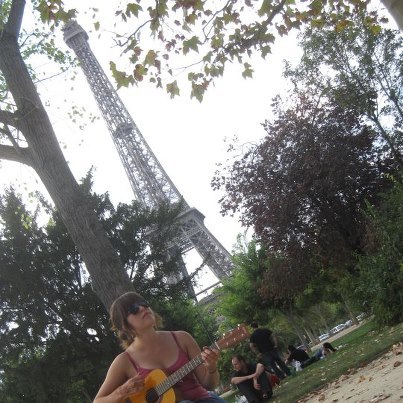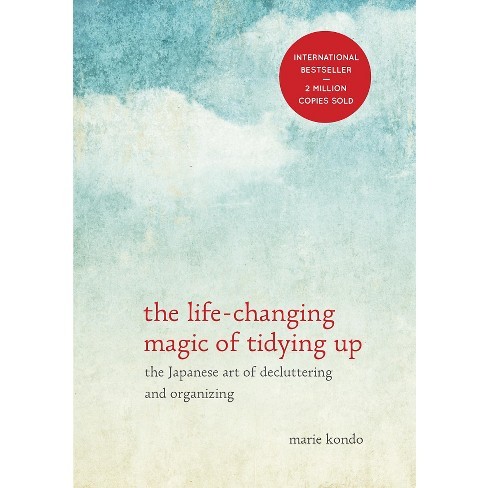Suzanne Falter's Blog, page 10
September 20, 2019
Learning to Forgive Myself After a Mistake
 Something mortifying happened to me the other day – and I learned quite a lot from it. I was at Berkeley Bowl, a popular grocery store here in the Bay Area at their most crowded peak time on a Sunday afternoon. And I was fighting the flu. Simply put, I wasn’t at my best.
Something mortifying happened to me the other day – and I learned quite a lot from it. I was at Berkeley Bowl, a popular grocery store here in the Bay Area at their most crowded peak time on a Sunday afternoon. And I was fighting the flu. Simply put, I wasn’t at my best.
I got into line to check out with my loaded cart behind a woman wearing very colorful pants. Just then I noticed I’d forgotten sliced turkey. So I took off at a lope for the deli section, grabbed my turkey and sprinted back.
As I returned to my spot behind the woman with the colorful pants, I realized my cart was gone. A fairly unassuming, silver haired older woman had taken my place – and there was no sign of my cart. “Hey!” I asserted to her indignantly. “Did you throw me out of the line? Because I went off to grab turkey? Seriously?”
Mind you, I’m not usually one to take out my aggressions on people in public places, but somehow I just lost it. Nevertheless, I continued.
“You’re kidding me!” I sputtered, as the woman just looked at me. “You need to let me back in line!”
“No,” she said, squaring her shoulders and staring me down. Behind me, other line members began to protest, saying I’d lost my spot since I’d left the line. Now I looked around wildly for my cart. “Now where is my cart??” I demanded.
Then, the appalling truth hit me. I was in the wrong line.
I could see my cart several feet away, patiently waiting for me. As it turned out, the woman in the interesting pants had changed lines. “Oh, Jesus,” I said. Then I apologized, grumpily, and slunk back to my correct spot, ashamed.
Sigh.
Meanwhile, a nice guy was dutifully moving my cart forward and waiting for me to return. “I’m having a bad day,” I told him – and that was, indeed, true. I had no business going to Berkeley Bowl at peak hour when I felt as lousy as I did.
And yet, instead of following the path of self-care, I resisted. I told myself I ‘had’ to buy groceries at that exact moment. That somehow my wife couldn’t do the job instead. Would we have starved if I hadn’t? Hell, no. It was my own stubborn resistance to being sick that drove me out the door.
For days, I carried around with me this black cloud of my bad behavior. At least, I did until I spoke to my wise friend Kaitie. “Let’s remember something,” she said. “You want to put this in its true perspective.”
The fact was that I had apologized – albeit grumpily – to the woman I had railed at. And I had acknowledged my mistake to the kind man behind me. No lasting damage was done. And yet …
“Shame shows up where you want to change,” Kaitie remarked. And I have to concur; that is so very true. Apologies, shame and being humbled are so uncomfortable that they provide us with the perfect on ramp for lasting insights.
But still, the biggest takeaway for me is this notion of ‘true perspective’. After my mistake, I felt as terrible as if I’d done something far more serious. Maybe not rob-a-bank serious, but still … my mindset was pretty bleak.
We lack perspective about our mistakes because our own severe inner dialogue usually takes over. And mine was kicked into high gear. Did I need to beat myself up for days about this? No. Was it okay that I made a mistake? Yes.
So, slowly, finally, I began to relax.
This is what we do in our mortal coil. For what is life but basically a series of accidents, mistakes and missteps? Some are calamitous and others small. They’re all folded in there among the triumphs, the celebrations and the day-to-day tasks of life.
They key is to understand that we truly are only human, and that we will fail ourselves and others from time to time.
Even at Berkeley Bowl in the middle of a Sunday afternoon.
The post Learning to Forgive Myself After a Mistake appeared first on Suzanne Falter.
September 10, 2019
I’m Too Much … Are You? Turning Our Force into Power

See if this rings a bell. You’re sitting in a restaurant in your very best Sunday dress – maybe the navy velvet one with the scratchy lace collar that all of your eight-year-old friends covet. You are excited to be in this French restaurant on a Sunday night with your family, and eagerly anticipating the chocolate mousse that will arrive if you eat your vegetables. You’re having a lovely time when suddenly your older sister leans in perilously closely. “Would you please stop yelling?” she snarls.
Yelling? You weren’t yelling. Merely talking non-stop in a loud, persistent voice, and trying like hell to be penetrate the fog of the martini-laced adults at the table.
Or maybe this seems familiar. You find yourself running, nonstop, all the time, up and down hills, in and out of houses, up and down grocery aisles. Mainly you do this because it’s fun. You love running around. Life has zing! It’s meant to be leapt into and you know this, even though you are only three or four. The parents around you, however, aren’t having it. Would you stop running For Lord’s Sweet Sake, one of them thunders at you.
You walk away confused.
That little girl was me, of course, I have that big, zestful, oversize personality to this day, though I have learned to slow down a bit and even speak more quietly in restaurants. What that’s taken is mostly public rebuke. The woman on the crowded train in my thirties who approached me and said, “We’re all listening to your conversation, dear, word for word.” Or the choir director who in more recent years kept telling me to ‘keep it down’.
What I take away from all of this is that when you have a big energy, you must make modifications, yes. But you also must learn to nurture your gold – your fire, as my guest this week, Aurora Remember, likes to put it. This involves making choices that suit your best interest.
For me, this has been a gradual process of moving from shame about my big energy to gradual acceptance, and now, later in life, to out and out celebration. Turns out there really is gold in them hills. Because I now understand this big energy is what has powered me through considerable success as an entrepreneur. It’s what informs my voice as a writer. It’s a fundamental part of my creative output.
Without it, I simply wouldn’t get that much done. Nor would it have my unique, slightly too big stamp on all that I create.
I wouldn’t have the visions I have, for … say … a podcast about self-care. And I wouldn’t have the guts to write all those books about joy, or my series of novels. I wouldn’t have the nerve to speak on stage – and I certainly wouldn’t have recovered to the extent that I have since my daughter Teal’s death several years ago. I wouldn’t know my place in the world and why it matters.
I can remember a telling moment some years ago in a therapist’s office. Suddenly, it struck me that the reason I was so oversized – and yes, I am nearly six feet tall as well – is that I’m meant to stick out. I’m meant to be a front of the room leader, with a distinctive, attention-getting voice and manner. I’m meant to wave a flag and make a difference.
The culprit when we quietly die on the vine is usually shame – a fundamental dislike of who we are and what we share with the world. That definitely stopped me cold when I was younger. Back in my twenties, I struggled to finish my first novel. Pushing with all the might I had, I finally did squeak out a first, tortured book which got me a literary agent, but little more.
Over time, things improved. I got up and wobbily performed original songs in some of New York’s cabarets – and people laughed and applauded and I built a following. I found a publisher for a novel, finally, and then a self-help book. I took my one woman show on the road in my forties, and found both bitter and kind reviews on tour. More books followed, and speaking gigs as well.
And over time, I began to realize, the ‘issue’ wasn’t my big personality. It was whether I would show up, make myself known, and take whatever heat came my way. Eventually, it all became too much fun to stop – and so I continue generating content to this day. The fear of public shaming is no longer even that relevant.
People like what they like, and they diss what they diss, and so life goes on. It is not our job to understand or meddle or even manipulate and cajole. It is simply our job to put ourselves out there, with, glee and yes, appropriate indoor voices. And to move towards the light that embraces us and celebrates the unique and stirring magic that we are.
May you, too, love your bigness.
The post I’m Too Much … Are You? Turning Our Force into Power appeared first on Suzanne Falter.
August 12, 2019
Tapping into the Joy of Life (in Memory of Teal)

There is a week each year when I remember and grieve the loss of my daughter, Teal. And it’s now, between August 14 and 21. It coincides with the time of her collapse, and subsequent death six days later. And I find it essential to my well-being to acknowledge it.
This is one of the really interesting things about losing the people you love. You either run from that reality, and so close down an entire world of possibility for transformation. Or you take a deep breath, plunge in and embrace the sheer awfulness of it. You stop everything and allow that grief to live in your heart for a while.
You cry when you need to cry. You lie on your bed and suck your thumb in fetal position, if you have to. You just allow yourself to fall apart completely. Then eventually, the storm moves on and you are left far emptier … and yet, far better for it.
For you no longer have to fight the demons in your own head that are trying to keep those feelings at bay. Turns out that’s a fight you’ll never win, which is why it’s so much better to surrender.
So you surrender to circumstances that are bigger than you for a while. And you discover just how small and powerless you are in this grand life. In doing so, you rediscover yourself, your true self, waiting on the other side. That’s when transformation happens.
As people sometimes say of these moments, you become better. Or you become bitter.
So my entire perspective about both life and death have shifted radically. I no longer face the world with my tough-girl game face of intimidation, nor do I need to lose myself in compulsive overwork, as I once did before her death. I’ve also lost the ‘hungry ghost’ feeling that I’m not enough, and so must push myself beyond all reason to achieve, achieve, achieve.
The other beautiful thing is that I stopped fearing other people, or what they may think of me. Instead, I’ve taken a major chill pill. Instead, I’m far more interested in having fun.
No longer must I know how everything will come out, or ‘work hard’ to micromanage and coerce results. Turns out I don’t have to grip and hold on to be safe. What a great discovery this is, for it unpins you completely.
When the worst thing that can possibly happen comes to pass, you discover an unexpected sweetness on the other side of that crisis. A transformation comes that makes your entire life far better.
If you allow it.
Each day since Teal’s death, I learn a little more about something she knew innately. She understood how to tap into the gorgeous flow that surrounds us, and ride the undulating waves of life with unexpected ease. She also knew how to accept what comes as necessary and important.
Teal was at peace with her epilepsy – the condition that ultimately may have killed her, though we will never know for sure. Instead of fighting her condition, Teal worked with it, taking excellent care of herself and making her rest, her serenity and her health her top priority.
When she wasn’t doing that, she was tapping into the joy of life. Because Teal also understood about balance.
 After she’d gotten the needed rest, there she’d go. Heading off for a backpack adventure in Asia. Jumping out of an airplane in a tandem sky dive. Busking on the streets of Europe. Farming in France. Singing with her blues band in Austin. That was all part of her plan, because Teal also knew how to tap into the joy of life, as well.
After she’d gotten the needed rest, there she’d go. Heading off for a backpack adventure in Asia. Jumping out of an airplane in a tandem sky dive. Busking on the streets of Europe. Farming in France. Singing with her blues band in Austin. That was all part of her plan, because Teal also knew how to tap into the joy of life, as well.
So I learn from Teal’s example, and I do my best to surf life’s contours every day. When I’m inspired to work, I work. When I’m not, I walk. Or I read. Or I daydream. And when life kicks my butt, and I get sidetracked into some drama or upset, I do my best to shake myself off, get back on the board and … ride! It’s a practice.
That’s the other thing — I don’t have to do it perfectly. And so life has become fun again.
Even death isn’t a particularly big deal any more. At least a lot of the time.
Sometimes I feel Teal around me, speaking into that small, still space between sleep and waking. It’s the very same space we heard a lecture about only a few hours before her collapse … the ethereal passageway that shamans travel in between the afterlife and our world. As the speaker explained that fantastical connection, she pivoted in her chair and looked at me wide-eyed, making sure I understood its significance.
I didn’t at the time, of course. Because I had no idea she, herself, would soon be traveling those very airwaves.
One of the messages she gave me in this pre-dawn waking has stayed with me. It is this:
Do not judge death with the same limited mind that barely learns or understands the potential in life.
You feel that potential sometimes in life’s magic – the touch of a lover’s hand, the triumph of a long-cherished dream. Or in the laughter of a child. But you are afraid of that power and so you hang back.
Do not hang back. Instead, become quieter and quieter until you are fully suffused with the power and majesty of God who lives inside of you.
Then let go. Do what you want. Allow yourself to truly feel your own deep, soaring magnificence.
The full, God-given gift of life is available to those who do not fear death. For loss is only temporary, a fleeting stab of pain.
When I forget about this, and get lost in that sense of deep longing that comes with grief, I go back to these words. For in them, really is the joy in life.
As Teal, herself, so rightly knew.
The post Tapping into the Joy of Life (in Memory of Teal) appeared first on Suzanne Falter.
August 9, 2019
Is It Okay to Be Mad at God?

Oh, how hard it is to be human! We are weak creatures, full of pain, self-pity and angst. And we just plain don’t like how things turn out sometimes.
For instance, in the years immediately following my daughter Teal’s death, I was mad at God from time to time. Again and again I felt caught in the quick of these dark failings. But … was my anger really a dark failing? Consider this. Perhaps it is actually alright with God if I am mad at Him/Her/It.
I suspect that it is.
In fact my anger was the sign of something moving, something stirring in this dark, narrow passageways of grief. It was the ghost just down the way, beckoning for me to come hither.
And yet I hung back in my anger at something huge and nonspecific (call it God.) Was it really safe? Could I honestly get furious? Wasn’t God, the Creator, responsible for all that I am – from the air I breathe to the cells in my body? Isn’t God my father, my mother, my very being?
Yes, indeed. And for that reason, anger is not only okay … it’s necessary.
Just like a cool breeze on a hot day, when I finally allowed myself to delve in and dig around in the scratchy sandbox of my emotions, my anger refreshed and restored me. It became just as critical to my well-being as clean water, rest and the great outdoors. So I moved on in far greater peace with God.
If God is our primordial source, then who better to be mad at? For then we are no longer avoiding that vast well of fury that dwells within … As for me, I’m dipping my ladle and measuring out precious cups at a time.
Yes, I did just write ‘precious.’
If you were like me, you were raised to believe that anger is bad and that good girls don’t get mad — and certainly not at their controlling addict mothers. In my family or origin, I could never get mad at Mommy under penalty of serious punishment. So I pretended ‘mad’ didn’t exist, stuck my fingers in my ears and avoided such things for the next 50 years.
This is how we grow up numb, afraid to own or even know our anger – until it comes barreling out in untoward ways. Yet, over the years I’ve come to trust my anger, and realize that it can be a balm to the soul. It is the release of the pressure valve, and the surrender of the false veil that has us parked in ‘Everything’s fine!’ all the time. Anyway it just feels damn good sometimes.
Yet, anger is also our internal warning system, calibrated to tell us where to set boundaries, avoid danger and generally protect ourselves. In fact, it’s an important information source. All those years ago, when Mom was raising hell while I was trying to do my homework or possibly sleep, my anger was nothing more than warning flashers that my space was being invaded.
Now I’m left with a new appreciation for anger. It’s crucial for setting boundaries for one thing. When I’ve allowed it, it has told me again and again when things were out of balance – when I was off kilter. When danger lurked. Today I’m grateful for every moment of that discomfort.
So back to the question of God … given that this natural warning system is critical to our well-being, why wouldn’t God approve of some gnashing of teeth? Given how limited we are in the grand celestial scheme of things, it hardly matters, does it?
Sooner or later, we are going to be resistant to the flow of life on some level, no matter what. And yet, once again, we will muddle through – feeling our way along we go, just trying to find the next toehold on the path to wholeness.
Wherever you are today with your anger, may you know you are whole, safe and sound. You really are.
The post Is It Okay to Be Mad at God? appeared first on Suzanne Falter.
July 25, 2019
How a Career Full of Failures Taught Me Inner Peace

Have you ever noticed that our path in life is often to go through pain and suffering, connect the dots, and emerge a better person?
At least, that’s how it seems to me. What I notice is that at age 57 I am no longer struggling to ‘make something BIG happen.’ I did that, in my own small way.
I can relax now.
From as early as I can remember, I often had the thought that I must become a star – that my life depended upon it. So I went to the best college I could, worked my ass off in job after job, and married a man who I knew would boost me along.
I strived, pushed, and cajoled the Universe. And I had some small success. I published a first novel with Random House, which at the time felt like a crowning achievement. “This is it!” I thought with glee. “I’m gonna be famous for sure!”
I wasn’t; my mother and fifteen of her friends bought my book. Despite my best efforts, my writing career didn’t take off. So I tried again, this time with non-fiction.
I felt spiritually swept along as I followed the up-up-up trajectory of my first self help book, How Much Joy Can You Stand? ‘This time is REALLY it,’ I told myself.
Again, I was wrong. Or perhaps … I was right. The book found its path, I got a nice advance, and it sold maybe 40,000 copies overall. Not stellar, but not bad.
Stardom, however, still had not arrived.
Life pushed me along to other arenas where I might ‘be a star’. First I went out on the road with a one-woman show. I simply had to use my other talents, I thought. That ought to do the trick. But it didn’t.
While they loved me in Orlando, the rest of the tour was somewhat blah. Houses were sparse; reviews were non-committal. I even tried to force the joy at one festival by getting friends to vote my show in as ‘Best Comedy’. The win felt so empty and meaningless that I never even picked up my trophy.
The final straw came in Vancouver when a reviewer wrote that my show was the worst she’d ever seen, likening me to William Hung from American Idol. An audience member even walked into the middle of the stage during one of my monologues and triumphantly cried, “I am going to bring this show down!”
Hmm … I guess they didn’t get it. So I pushed on bravely, this time to internet marketing. Here would-be stardom wasn’t hard to create. I just had to throw myself into it, work my ass off, and believe in the mission with all my heart.
Again, good things happened. I earned surprising amounts of money, and people seemed to know me. But when I poked my head up from time to time and looked around, it all still felt empty and meaningless. Even this, with its abundant financial success, wasn’t enough.
I let go of my marketing career a few months before my daughter died. I packed it all up and headed back towards the safe sanctuary of writing. That, at least, was a place I knew I could tread water until the ‘next big thing’ came along.
Finally, three years later, when I had few prospects and no achievements in my immediate periphery, I came to realize I actually am enough. It’s kind of crazy, but it’s true.
And since then things have slowly progressed. I now have several self-published books at hand. A book with a major publisher (my first in fifteen years) is due to come out in December. It was a modest deal, certainly not enough to live on, which may or may not ever get any attention. No one’s optioning the film rights. And while I will probably get to record the audiobook, I have no idea what the overall sales of the book will be.
This is hardly the stuff that dazzling college alumni magazine blurbs are made of. Yet, perhaps this is the point …
What I know now is that I no longer have to be a star. I no longer have to have all the answers or do things perfectly. I don’t even have to make a lot of money to feel satisfied. This simple, beautiful life in which I am truly mistress of my own domain, living happily in marital bliss and doing what I love is certainly enough.
I realize that ‘stardom’ is actually an old outdated idea that got lodged in my ego decades ago. And it’s not worth it. A win that is finagled and cajoled means nothing. Neither does a win in an arena where your heart is missing.
What matters are the intangibles like the beautiful curve of my wife’s hand as it lies on the bed sheet in the morning. Or the lovely glow of the winter sky at dawn outside our window. What matters is how happily the dog moves down the street on her walk, and what I will say next as I approach another blank page.
In the end, we simply have to show up, do the job God has given us to do, and love our fellow humans. That’s enough. We don’t have to push and strive endlessly, and make ourselves crazy in the process.
It is not our job to save the world or be a highly lauded hero. It’s just to move through our days with love and grace, taking care of ourselves along the way.
We can only do what we can do, and nothing more. The old parable is true. The journey really isn’t about the results. So life becomes simple again and the heavy cloak of Brilliance gets lifted.
You and I are enough, right here and right now, with not a thing added.
The post How a Career Full of Failures Taught Me Inner Peace appeared first on Suzanne Falter.
July 16, 2019
Not Enough Time or Money? Could it be the Scarcity Trap?

Have you ever noticed how when you’re truly crunched for time, you seem to get busier and busier? That no matter how fast you try to click through the endless tasks on your To Do list, more items seem to magically appear?
Or maybe you’ve noticed that just when you’re feeling especially strapped for cash, weird new expenses hit you out of nowhere.
If so, you’re caught in something that Harvard economist Sendhil Mullainathan calls ‘The Scarcity Trap’, in his book Scarcity: Why Having Too Little Means So Much. It’s the mindset that often befalls us when we don’t have quite enough time or money.
In an interview with NPR, Sendhil, who is a MacArthur Genius grant winner, explained it in terms of his car registration. Or specifically, his inability to get it renewed.
Months after the registration expired, there he was, dodging police cars, rescheduling appointments and classes he was now late for and worrying incessantly. Yet … somehow he never could find the time to actually get the sticker renewed.
This is what we do when we worry about scarcity … we create even greater scarcity. We obsess over it. We fret, stew and worry, convincing ourselves that we can’t take the needed time to deal with the problem.
Instead, we strategize short term. We take out that high interest loan instead of fixing our income flow … or we hide from the police instead of taking an afternoon to visit the DMV. Which means, ultimately, the problem remains unfixed.
So we remain powerless in the situation. And we do, indeed, feel stuck.
“When you have scarcity, and it creates a scarcity mindset,” Sendhil says, “it leads you to take certain behaviors which in the short term, help you manage scarcity but in the long term, only make matters worse.”
In other words, you focus like crazy on meeting the most urgent needs, so the basis of the problem gets ignored. Which means there will be even more scarcity tomorrow.
I liken this to having a lousy job. Years ago, I worked in a toxic workplace, a huge advertising agency where I was a copywriter churning out commercials for big name dish liquids and deodorants. Routinely my boss would dote on his favorite writer, a woman I’ll call Diane, who always manage to steal my ideas and present them as her own work.
Every day I became more and more resentful … and yet, at the same time, I felt powerless to speak up or even look for a new job. Why? I was exhausted trying to just generate more ideas to compensate for those I’d just lost. Meanwhile, I fumed, plotted, and strategized about how to undermine Diane.
Rather than lodging a complaint with management, or even just stopping and taking a few days off to pull my copywriting portfolio together and show it around town, I dug in. I hunkered down.
And I stayed stuck.
In the end, Diane got the big promotion. And me? I got fired. Clearly, I’d been caught in the Scarcity Trap. In my race to get the boss’s respect, I’d forgotten my own self-respect and so bottomed out.
I’ve also seen it play out in money. You know the scarcity trap if you can’t stop racking up credit card bills – especially if you’re paying for things like loan consolidation services, or you invest in wild business schemes that you believe will finally bring about financial relief.
Sendhil, our Harvard economist, studies the economics of poverty, and has observed that poor people tend to make bad financial decisions, usually leading to deeper debt. And that’s often because they believe they can’t get ahead enough to make smart ones.
So the Scarcity Trap marches on. It’s a belief that there really ISN’T enough for you or whatever you need. That worry becomes so all consuming that it does not allow you to focus on what you actually DO need: a view of the overall picture.
The solution is surprising … and yet it’s not. Eldar Shafir, co author with Sendhil of a book called Scarcity, offers this: Give yourself time to just think. Create a few windows of space within your day –(and this part is important) — especially the most crowded ones.
That’s how you break up the thought stream of the Scarcity Trap.
Make that precious Me time sacred. Do not let anyone take it away from you. Give yourself enough time to brainstorm, think, and make notes. Time to get inspired by your own small inner voice and find a new way. Maybe it’s a half hour, or even an hour – and don’t tell yourself you can do this while you’re driving home. It needs to be truly unstructured, free form time.
The solutions to our problems are there … though we don’t always make time to listen to them.
But then think about it … isn’t this the way that most dilemmas are really, ultimately solved?
If you’re caught in the Scarcity Trap, may you, too, find your way to wonderful abundance.
The post Not Enough Time or Money? Could it be the Scarcity Trap? appeared first on Suzanne Falter.
July 9, 2019
A Recovering Codependent’s Rules of the Road

I woke up this morning with the most beautiful insight. I realized I genuinely love people. Like … everyone.
This sense has been a lifetime in coming. Mainly because I spent a lot of my life mad at people. And who can blame me? For most of my life, I have been Susie Codependent – controlling, cajoling, managing, manipulating and generally forcing reality and its players as much as I could.
So when life didn’t give me what I wanted, I was just plain mad. And I pushed. I was known in some circles as ‘The Bulldozer’. But then, eventually, I stopped. Mainly because it just didn’t jibe anymore with who I had become.
This is the gift of severe loss. Losing my daughter and my former life shocked me into a state of hyper awareness about all that no longer worked in my life … and into reexamining all of my values. Perhaps it was this plus the perspective that comes with one’s middle years, but I realized I no longer needed to rush and strive.
It also taught me the following lessons. One could call these a recovering codependent’s rules of the road:
1. I don’t need to make anyone happy but myself. It’s actually my primary responsibility, and oh is this easy to forget at certain times of your life. Like, especially when you are pressed to the wall with children, a career, a marriage, etc … EVEN THEN you can still look up and ask ‘What do I need right now?’ And you still do deserve to get it. Yes … you really do.
2. I really can – and do – say ‘No’ whenever I need to now. Shockingly, the sky doesn’t fall. It’s great! You may even find yourself pushed, cajoled, manipulated and even outright begged by those who can’t accept a ‘No’. But do not weaken, friend. This, too, is critical self-care. There are times when others’ needs simply aren’t a fit. Whoever they are, rest assured they will get over it.
3. No one has to march to my tune but me. Boy have I had a lot of good ideas for everyone else — and often, surprisingly, everyone else didn’t want to hear it. Why? They have a right to live their life EXACTLY the way they want. As do I And if that means I need to go my own way, so be it.
4. Things usually work out just fine. We heard this in that lovely movie, The Best Exotic Marigold Hotel. (“Everything will be alright in the end, so if it is not alright it is not the end.”) Once you’ve been thru the worst thing that can happen and you emerge better for it … well then, you learn to go with what comes. Often the next thing is surprisingly great!
5. We worry too much. And worry just gets us a whole lot of agita, right? Here’s the thing with worry — it’s all illusion. Only what is happening right now is real. This blog post is real. The chair you are sitting in is real. Your phone or computer screen is real. What may happen tomorrow is not real. Not yet, at least. So by trying to control the outcome with worried thoughts you only tie yourself in a knot. An easy habit, but ultimately not a helpful one.
6. We can’t force reality. What a shocker! So thought I could. Kind of hilarious when you think about it. And yet, if you take another look at point #4, you’ll remember that the mystery is part of the process. Allowing is far more powerful than pushing. In fact, allowing can produce results that are far greater than anything you could have imagined. Just ‘turn it over’ as the saying goes when you release something or someone into the world. Send them/it off with love, not needing to know what will happen next. Then allow yourself to be surprised by what does occur.
In the end, all we’ve got is love, my friend.
Turns out accumulating stuff is highly overrated and somewhat lonely. But love really does heal all wounds.
The post A Recovering Codependent’s Rules of the Road appeared first on Suzanne Falter.
June 16, 2019
How to Walk Away from ‘Should’
 Lately I’ve been pondering how important our thinking process is to our mental and physical well-being. I’ll share a personal example to show you what I mean.
Lately I’ve been pondering how important our thinking process is to our mental and physical well-being. I’ll share a personal example to show you what I mean.
This afternoon, I have a choice. I can sit dutifully at my desk until 5 and work on learning how to use my new screenflow software. Or … I can finish this blog up, ditch that project, and head off into nature.
Apparently when I get up to Redwood Park for a walk with my wife and our dog, my tendency to ‘ruminate’ (i.e. think negatively or fret about my past, or my life, or my business … or whatever) will decrease significantly, according to neuroscientists.
The activity in the part of my brain associated with anxiety and depression will stop. All just because I’m taking a stroll in the park.
Researchers have found that walking in nature, versus in a city, dramatically decreases this kind of negative thinking, while it increases creativity.
On the other hand, if I stay at my desk and crank along on the screenflow training, one more item gets ticked off the list. At the end of which I’ll be REALLY ready for that nice cold Friday Night glass of Sauvignon Blanc. Because by then I’ll be tired.
Too tired.
I’ll be looking for ways to relieve the now present stress and pain of overwork … instead of feeling fresh and revived by a wonderful afternoon among the redwoods.
So I choose either a remedy … or I choose a preventative move towards well-being.
In the end, I choose well-being, because here’s the thing. After a bunch of good, healing weekend R&R, I’m probably going to be totally into learning the rest of that training.
Which I’ll do more efficiently and more happily with fresher, livelier brains. The only thing stopping me is my ability to step away from the ‘shoulding’ and the shame, and give myself what I need in the moment.
For me, right now, that means taking a walk. And getting over my habitual tendency to overwork. In the past, that behavior was rooted in a need to prove myself – to be everything to everyone by accomplishing things.
And yet, turns out I’m only one person and imperfect at that.
When my daughter died, all that unnecessary ambition and striving died right along with her. Suddenly I landed soundly on my ass in the land of crisis. I had to spend a lot of time slowly calming down, and then grieving, and then slowly reinventing my life.
As a result, things are in balance now. And it is MUCH much easier to walk away from, say, screenflow training.
When you finally are at a place where you can listen to yourself, hear your needs and respond to them, you can begin to cycle back to a place of balance. Of alignment. This is really the crux of good self-care.
But all too often we lose ourselves in perpetual stimulation, from business to the ever present phones in our hands.
Why not take a look and see if there’s something you’d rather let go of, instead of pushing yourself to do against all odds?
Are you listening to the phantom voices of past experience, or the wise voice of Now, Present and You. She’s always there and she always has something to say.
You just need to tune in and listen.
May you walk away from work at just the right time, or whatever has used enough of your energy.
Then … why not? Go enjoy yourself!
If you’d like some encouragement with your own self-care, consider joining our Self-Care Group for Extremely Busy Women on Facebook. There are nearly 2000 of us now, encouraging each other, sharing ideas, and keeping self-care top of mind.
You can join us by requesting an invite. We’ll send it right away.
INSERT LINK
I’m so glad you’re here!
The post How to Walk Away from ‘Should’ appeared first on Suzanne Falter.
May 30, 2019
What Steph Curry Taught Me About Myself

I don’t know about you, but there always seems to be something I don’t love that I just did. Seems to never fail. And yet …
I’ve come to realize that thinking this way is a habit. In my case, it’s one that was formed upwards of 50 years ago. Seeing my mistakes with harsh judgement is hard to break.
Indeed, in the U.S., many of us are haunted by a sense of not-enoughness. We are often chronically tough on ourselves, and find it much easier to forgive others first.
After all – we should have known better, right? Meanwhile, the world turns on around us and mistakes are being made all over the place.
Recently I ran across this quotation from NBA superstar (and Oakland local) Steph Curry. He said this in 2016, a year after the Golden State Warriors won their first Finals in forty years and were largely expected to do it again. Mostly because of Steph, who was MVP at the time.
But they didn’t win the title. They lost to the Cleveland Cavaliers in a seventh game clincher in which both teams were 3 for 3. Here’s what Steph said to the media afterwards:
“You gotta just take the good with the bad … I didn’t play efficient. Had some good moments, but I didn’t do enough to help my team win. … It’ll haunt me for a while because it means a lot to me to try to lead my team, and do what I need to do on the court and big stages. Done it before. Didn’t do it tonight.
It’ll be good next year coming back … remembering this feeling and being an even better player.”
“It’s not a good feeling [that we lost], but at the end of the day we want to keep this memory so it will fuel us as we stay together as a team.”
Whoa. Thanks, Steph.
I personally found this inspiring. Because what Curry is saying is that all loss is useful one way or another. Screwing up can lead to major improvements, when put in the right perspective. It can even be used to fire up a championship team to become better than they were before.
And yeah, Steph worked his fanny off in the pre-season, regular season and post season of 2017 and 2018, and they clinched two more championships, both against the LeBron James-led Cavaliers. In fact, Steph has a tattoo under his bicep that reads: “W.O.E”.
It stands for ‘Working on Excellence.’
So what does this mean for my own petty squabbles with myself? It means I’d better just let go and think like Steph. No need to bully myself when I foul up. Yeah, okay. I can have a few regrets, or feel ‘haunted’ as he put it, by his mistakes.
But ultimately the point is to use that misstep to improve, one day at a time. And to keep the eye on the future on how good it will feel to do better the next time, should there be a redo.
This final note from Warriors guru and coach Steve Kerr:
“You know, we’ve had so many moments of joy together, and it was like, wow, we’re actually having a moment of sorrow as a team.”
The implication is that this is not only not a problem, it’s normal. And sometimes the bitter comes with the sweet.
Me? I love this idea that we can not only expect sadness and hard times, we can make space for it. We can gently fold it in as just another ingredient to the great cake mix we call life.
And I don’t know about you, but I find that relieving. So I will do my best to put my failure in context the next time, and stop needing to make a big deal about it.
After all, Steph earned 12.1 million dollars in 2016, and he found peace even though they lost the Championship on a world stage. So me? Ok, fine.
Next time I’m just going to forgive myself. Or at least ask the question …
What would Steph do?
{NOTE: The Golden State Warriors will be playing in the 2019 NBA Finals beginning May 30. Stay tuned to sports media for more of the quotable Steph and his teammates.}
The post What Steph Curry Taught Me About Myself appeared first on Suzanne Falter.
May 14, 2019
What Marie Kondo Taught Me About Life

I just packed up and gave away two thirds of my clothing, and tossed 75% of my papers and notes. Not only do I feel remarkably lighter, I just had a major aha moment about the nature of life.
What happened is that, along with 40 million people in 11 countries, I read Marie Kondo’s book, The Life Changing Magic of Tidying Up. And … well … I tidied up, which in Marie’s terms means getting rid of a LOT of stuff.
If you haven’t seen her series on Netflix, “Tidying Up with Marie Kondo”, or somehow missed this massive phenomenon, tune in now. Not enough can be said for putting the environment around us back in order in all respects. From a self-care perspective, it’s simply huge.
It’s also a great learning tool about becoming present to yourself, here and now.
What really sets Marie’s work apart is that she gets you to tune in to your larger, animal instincts about each item, or paper, or book you hold as you decide whether to keep it. Instead of thinking, ‘I’ll need this someday” or “People say I look good in this,” you’re encouraged, to feel your truth. To tune in to your body.
What do YOU think? Does this make you feel happy? Does it ‘spark joy’, to use her term?
Is the item in your hands consistent with you and your values, at your core?
Turns out I’ve been letting other people dress me for the past ten years. I hired an L.A. stylist to the stars at one point, at vast expense. She looked at me critically in her tiny studio surrounded by drawer after drawer of fabric samples, and pronounced me a ‘tawny spring’. Then she laid out just what I should wear — and what I should not wear. (“Never purple and green … never!”)
She even handed me a small wallet size sampler of my colors and swatches for shopping trips, so her decrees would always be in my head.
Afterwards, I was far more flouncy and frilly, and dressed in lots of muted colors I’d never even considered before. I looked terrific and my feminine side was definitely played up. The only problem was that I’ve never been that woman exactly. The Suzanne that was getting dressed up every day was far more glamorous than the real me.
Now, eight years later, I’m happy to be back, in all my simple, jeans-wearing glory. None of those fancy clothes, the satins shirts, the swing skirts, the kitten heels, were a fit anymore. They belonged to a time when I was determined to make a splash. I wanted to walk in a room and be something of a show stopper – and I was. Very briefly. Even though it felt silly and a little over wrought. I was also in a difficult relationship with a woman who loved clothing and wanted to dress me, like a giant Barbie, and hey — now I had the clothes to do so. Not only did this remind me of my controlling mother, it made for a mighty superficial connection.
Now I find I have no particular statement to make, nor am I with a partner who needs to dress me. Instead, I can dress however I damn well please. And as I’ve shifted into my sixties my perspective has softened and changed. My focus has grown to include the world around me. So all those narcissistic old threads just got packed up and given to the Salvation Army. It was not only freeing, it was a remarkably humbling thing to do.
For who I am at my heart is someone who’d rather give my things away than wear them, and who’d rather live with less than more. I have also found my sartorial sweet spot — a few interesting shirts, some pretty, comfortable shoes. Great jeans, warm fleeces and jackets. The same old pearl stud earrings every day. That’s what fills me with joy.
In releasing my old clothing, I let go my unresolved past and I acknowledged who I have become.
It was bittersweet, and a little sad. I did have a lot fun playing grown up Barbie with my former lover. Yet, it was also exciting – and very validating to say goodbye to my past. For isn’t that the true nature of life? We are always changing, growing and shifting in a world that does the same.
By the same token, I got rid of most of my paperwork and files as well. Yes, I kept the tax records, contracts and important deeds and business papers we all must keep. But all that ‘research’ I never looked at? Gone. The endless lists of ideas, ‘blog fodder’, book outlines and the like which will never be used? Gone. Notes from course after course that I’ve never looked at again? And endless bank statements and other such records?
Shredded, one and all.
The paperwork I’d gathered around me like some kind of protective firewall was simply detritus from another time – proof that our culture has changed around us as well. For who actually keeps anything anymore that can’t live happily in the Cloud? Even a few years ago, that was not necessarily the case. And so, once again, I see how life ebbs and flows.
Who I am now enjoys the mental space, and the free, clean energy of a very light file cabinet. I love seeing my bureau drawers are only partially filled with neatly rolled underwear and tee shirts. All organized. All tidy. And I adore my half empty closet (shown above.)
Am I rushing to fill these voids back up again? Hell, no! They remind me of a conscious, present life in which things are simple. No drama. No confusion. Just serene, simple clarity.
And this too will eventually change, for that is the nature of life. We are always expanding, learning, growing, and shifting as life unfolds.
Then we simply become the next iteration of us. And that’s just fine.
It is simply what is.
The post What Marie Kondo Taught Me About Life appeared first on Suzanne Falter.



